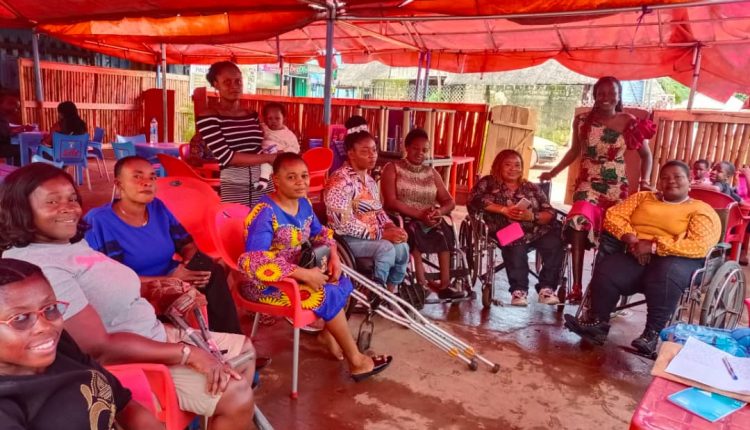
The Albino Foundation Public Notice
Voice of Disability Initiative (VDI) has gathered evidence report on sexual and reproductive health rights (SRHR) violations experiences of women and girls with disabilities in Enugu state.
In an event organized in Enugu on Friday, a cross section of women with disabilities were brought together to share their experiences in respect to SRHR violations against them.
It is part of VDI project supported by National Democratic Institute to advocate for the sexual and reproductive health rights of women with disabilities.
Mr. Edward Ogenyi, a program officer at VDI, in his opening remark thanked all the women with disabilities who had the courage to attend the program in order to share their various sexual and reproductive health rights violations experiences.
He said that all the stories would be used to engage policymakers. He further assured the participants that none of the stories would be personalized while engaging either policymakers, health care workers, or their partners who may be interested in the story or may want to validate the tools used for the evidence gathering, including the consent form.
He presented the evidence gathering forms to participants and promised that the forms, including pictures that were taken, would be strictly documented only in the VDI office to show the evidence of how the experiences were gathered.
He said that the issue of confidentiality will be prioritized and the report will only be released to the partners in a format required by the partners, which doesn’t break the etiquette of confidentiality. Any partner interested in any story can now be directed to the owner of the story to seek consent, and terms and conditions will be applied.
One of the participants, Ifesinachi, asked whether discrimination experiences could be shared. Mr. Edward in his response said discrimination and abuse experienced in health care facilities, especially during ante-natal care, can be shared as it will enable the organization to engage in dialogue with healthcare providers and change the narrative.
A woman with a disability, Blessing Okoroafor, after sharing her experience, said the process is professional and interesting. Women will be free to pour out their hearts. She found the program interesting and was very happy to share her experience. She said that she believes VDI can use their various experiences to advocate for an end to discrimination and stigmatization of women and girls with disabilities in hospitals, homes, and society at large.
Another participant, Onyinye Ogbu, said she felt relieved and excited because she believed that with this program, the voice of women with disabilities will be heard and all experiences that have been shared will soon be addressed. She thanked VDI and prayed to God to bless and strengthen them in their effort to ensure that a positive change is seen in the lives of women with disabilities.
The experiences shared were random ones, ranging from sexual and physical abuse to stigma and discrimination to gender-based violence and sexual and reproductive health rights violations at healthcare facilities.
The Qualitative Magazine



